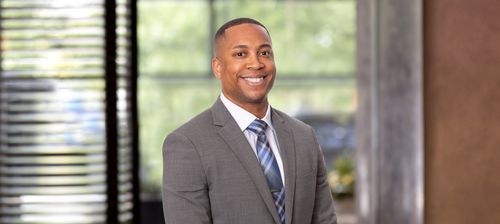Blog
DOJ Reaches $20 Million Agreement with BayCare Health Systems to Settle Claims of Allegedly Improper Donations to Increase Medicaid Funding
Blog
May 9, 2022
On April 6, 2022, the Department of Justice (“DOJ”) announced that Florida-based BayCare Health Systems Inc. and four affiliated hospitals (collectively, “BayCare”) entered into a $20 million settlement with the United States to resolve civil claims that BayCare had violated the False Claims Act (“FCA”) by engaging in Medicare fraud.[1]
The claims were initiated on December 2, 2016, through a whistleblower suit filed in accordance with the FCA’s qui tam provisions. The relator, a former hospital reimbursement manager in Florida, filed the action on behalf of the United States in the United States District Court for the Middle District of Florida.[2]
The United States contended that BayCare had made cash donations to the Juvenile Welfare Board of Pinellas County (“JWB”). The JWB then allegedly transferred a portion of these donations to the state of Florida’s Agency for Health Care Administration for Florida’s Medicaid Program on behalf of the BayCare hospitals, at which point the amounts were “matched” by the federal government before being returned to the BayCare hospitals as Medicaid payments.[3] This allegedly resulted in BayCare’s being able to recoup its original donation to JWB, and receive the matching federal funds. The United States further alleged that this conduct had resulted in BayCare’s receiving federal Medicaid funding to which it was not entitled, violating the federal government’s prohibition on non–bona fide donations.
Medicaid is jointly funded by federal and state governments. Under federal law, a state’s share of Medicaid payments must come from state‑ or local-government funds and cannot be a non–bona fide donation from private health-care providers. A non–bona fide donation is a payment—in cash or in kind—from a private provider to a governmental entity that is then returned to the private provider as the state’s share of Medicaid. A non–bona fide donation allows the donating entity to not only recover the value of the donation but also receive a corresponding federal expenditure that is unmatched by a state expenditure.
The settlement requires BayCare to pay $20 million to the United States, $10 million of which is restitution, and pay $25,000 to the relator.
KEY TAKEAWAYS
This Settlement Shows Increasing DOJ Scrutiny of Donations by Health-Care Systems
This is the second settlement between the United States and a health-care system for non–bona fide Medicaid donations. On February 14, 2022, the DOJ announced it had reached a $5.5 million settlement with NCH Healthcare System.[4] The two recent settlements underscore the federal government’s increased scrutiny of non–bona fide donations as a potential source of improper Medicaid funding—and its commitment to identifying and eliminating it.
Non–Bona Fide Donations Can Include Donated Health-Care Services
Non–bona fide donations are not always impermissible. The key distinction between permissible and non–bona fide donations is whether the donation increases the Medicaid payments received by the donating health-care provider, without any actual expenditure of state or local funds due to the provider’s donation. According to the DOJ, BayCare’s donations to the JWB were funneled to the state’s Agency for Health Care Administration for Florida’s Medicaid Program. A majority of these funds were then ultimately paid back to BayCare for treating patients who were covered by Medicaid. Even though the JWB did not directly and explicitly return the donated funds to BayCare, the donated funds ensured the state did not have any actual financial expenditure for the BayCare medical services provided to Medicaid patients.[5] This case highlights the need for health-care systems to diligently assess the permissibility of all donations to ensure they do not eliminate the state or local government’s financial obligation under Medicaid for services provided.
The High Penalty Shows the DOJ’s Commitment to Deterring Impermissible Donations and Enforcing Compliance Among All Health-Care Providers
The BayCare settlement reflects the United States’ commitment to investigate non–bona fide donations as a potential form of Medicaid fraud. The substantial settlement against a nonprofit provider like BayCare is a reminder to all providers, large and small, to ensure that their non–bona fide donations are permissible and do not result in improper return of funds to the provider. As with any potential fraud and abuse risk area, providers should adopt specific and regular monitoring and auditing of non–bona fide donations as part of a compliance program.
If you have additional questions or need further assistance, please reach out to Amandeep Sidhu (partner, White Collar, Regulatory Defense and Investigations), Christopher Parker (associate, White Collar, Regulatory Defense and Investigations), Allison Booth (associate, White Collar, Regulatory Defense and Investigations), or your Winston & Strawn relationship attorney.
[1] The DOJ press release is available here: https://www.justice.gov/opa/pr/florida-s-baycare-health-system-and-hospital-affiliates-agree-pay-20-million-settle-false. The settlement agreement entered into by the DOJ, BayCare, and the relator is available here: https://www.justice.gov/opa/press-release/file/1492401/download.
[2] See United States ex rel. Bomar v. Bayfront HMA Medical Ctr. LLC, Civil Action No. 8:16‑cv‑03310‑MSS‑JSS (M.D Fla.).
[3] See Settlement Agreement, https://www.justice.gov/opa/press-release/file/1492401/download.
[4] See Press Release, Dep’t of J., Off. of Pub. Affs., Florida’s NCH Healthcare System Agrees to Pay $5.5 Million to Settle Common Law Allegations for Impermissible Medicaid Donations (Feb. 14, 2022), https://www.justice.gov/opa/pr/florida-s-nch-healthcare-system-agrees-pay-55-million-settle-common-law-allegations.
[5] The distinction between permissible and non–bona fide donations is also important for noncash donations, including donations of medical services. In the DOJ’s settlement with NCH, the improper donations included the hospital’s provision of free nursing and athletic-training services to the school board, which freed up funds for the school board and county to transfer to Florida’s Medicaid program on NCH’s behalf. Liz Freeman, NCH Healthcare System Pays $5.5 Million to Settle Allegations of Improper Donations to Boost Medicaid Payments, Naples Daily News (7:00 a.m. ET, Feb. 15, 2022), https://www.naplesnews.com/story/news/health/2022/02/15/nch-healthcare-system-pays-settle-allegations-improper-donations-medicaid-funding/6788700001/. This, in turn, caused NCH to receive Medicaid funding for which it was not entitled, because it was not matched by state expenditure.
Related Professionals
Related Professionals
This entry has been created for information and planning purposes. It is not intended to be, nor should it be substituted for, legal advice, which turns on specific facts.



